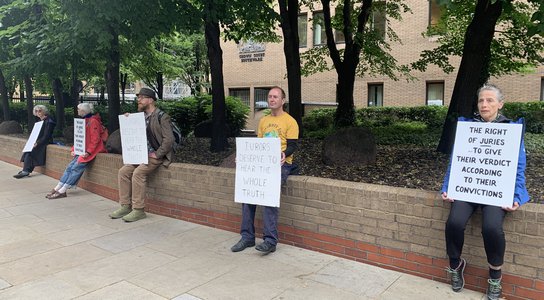On the fifth anniversary of the Thoothukudi massacre in Southern India, families and activists demand impunity is fought - and call for justice for those who lost their lives as a result of the violence.
On 22nd May 2018, Murugeswari Muthupandi watched her 20 year old son Karthi leave their home for the last time. He planned to join the crowds marching against a copper smelting plant linked to air and water pollution in the nearby town of Thoothukudi, in the Indian state of Tamil Nadu.
“I called him around 11am, but he did not answer. I then found out he had been admitted to hospital with gunshot wounds to his head," recalls Murugeswari.
Karthi died later that evening with his mother at his side. “I saw him die in such agony and pain with my own eyes,” she says, “no mother should be in this situation.”
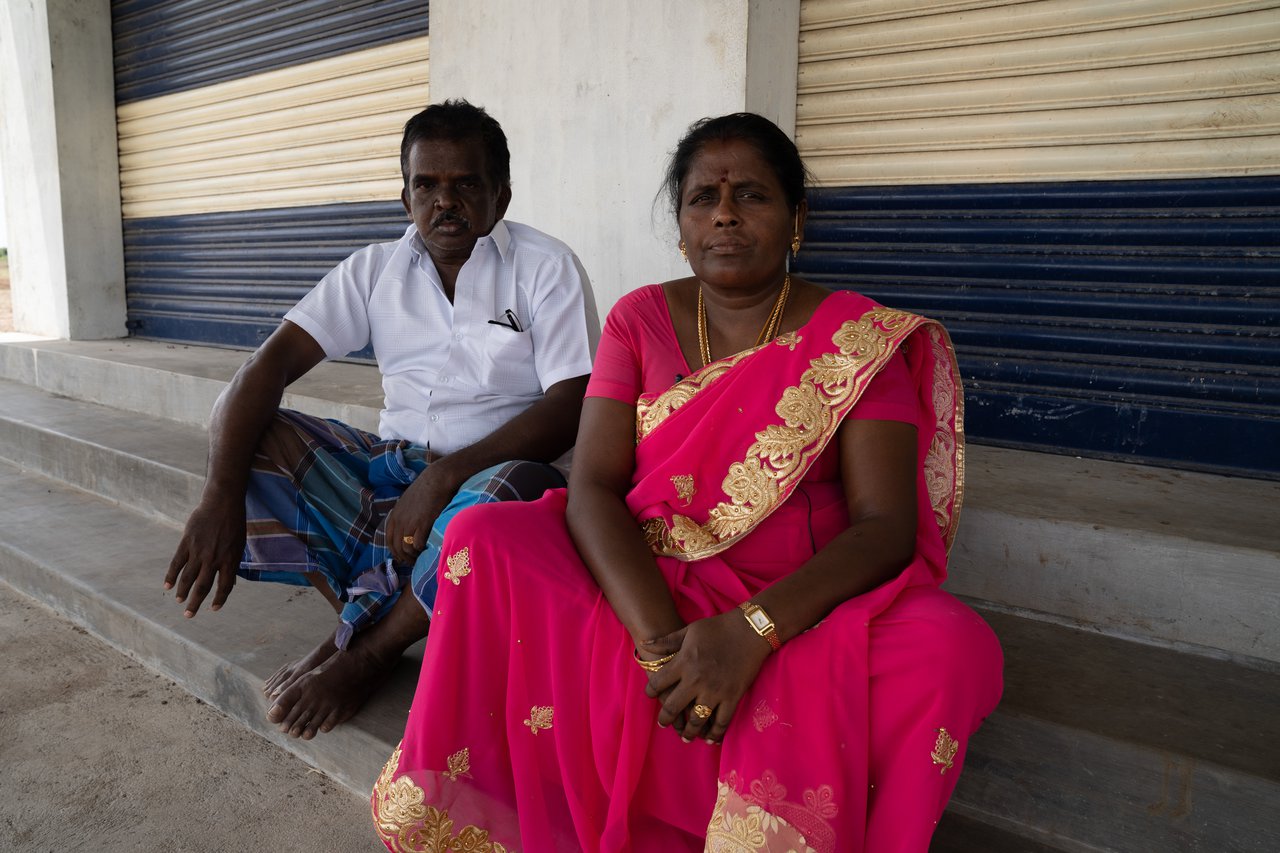
Murugeswari (right, with her husband Muthupandi) demands justice for her son’s killing and says the Sterlite plant should be ‘shut down for good’. Photo: Alina Tiphagne
Karthi had marched alongside thousands of people towards the District Collector’s office in Thoothukudi town to mark the 100th day of peaceful demonstrations against Sterlite Copper - India’s second largest copper smelting plant. Residents had concerns that the plant owned by Vedanta Limited, a subsidiary of by London-based Vedanta Resources, was causing health problems and environmental damage.
But as the crowd headed towards the Thoothukudi Collectorate, police attacked the demonstrators, firing live ammunition into the crowds. According to eyewitness accounts, images and videos caught on camera, and media reports police snipers shot at demonstrators and bystanders, killing at least 11 people – with more than 100 others reportedly injured in the ensuring violence. Another five people later died as a result of their injuries. Almost all those killed by firing were found to have gunshot injuries on their faces.
The government later claimed that the shootings, now known as the ‘Thoothukudi massacre’, were in response to the marchers resorting to violence.
“Once the firing started we all started running,” said Amirtham Ammal, a 75 year old woman from Pandarampatti, a village situated less than three miles away from Sterlite Copper’s plant. She joined the march after growing concerned at the bad smells emanating from the plant when it was operating. “No one could stand outside or be on the terrace. We realised Sterlite Copper was causing pollution. This made people stand together,” she says.
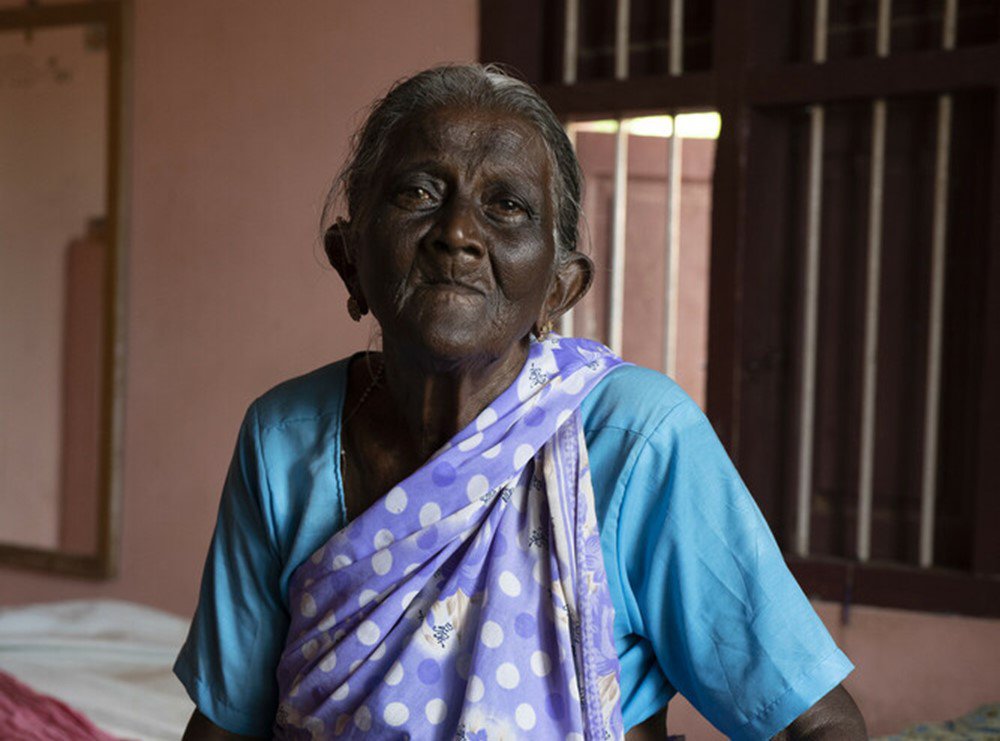
Amirtham says that life is better now the plant has closed: “We move around without fear. We can sleep outside on the terrace without breathing in toxic fumes.” Photo: Alina Tiphagne
We never anticipated that we would witness this fury of the police - Amirtham Ammal
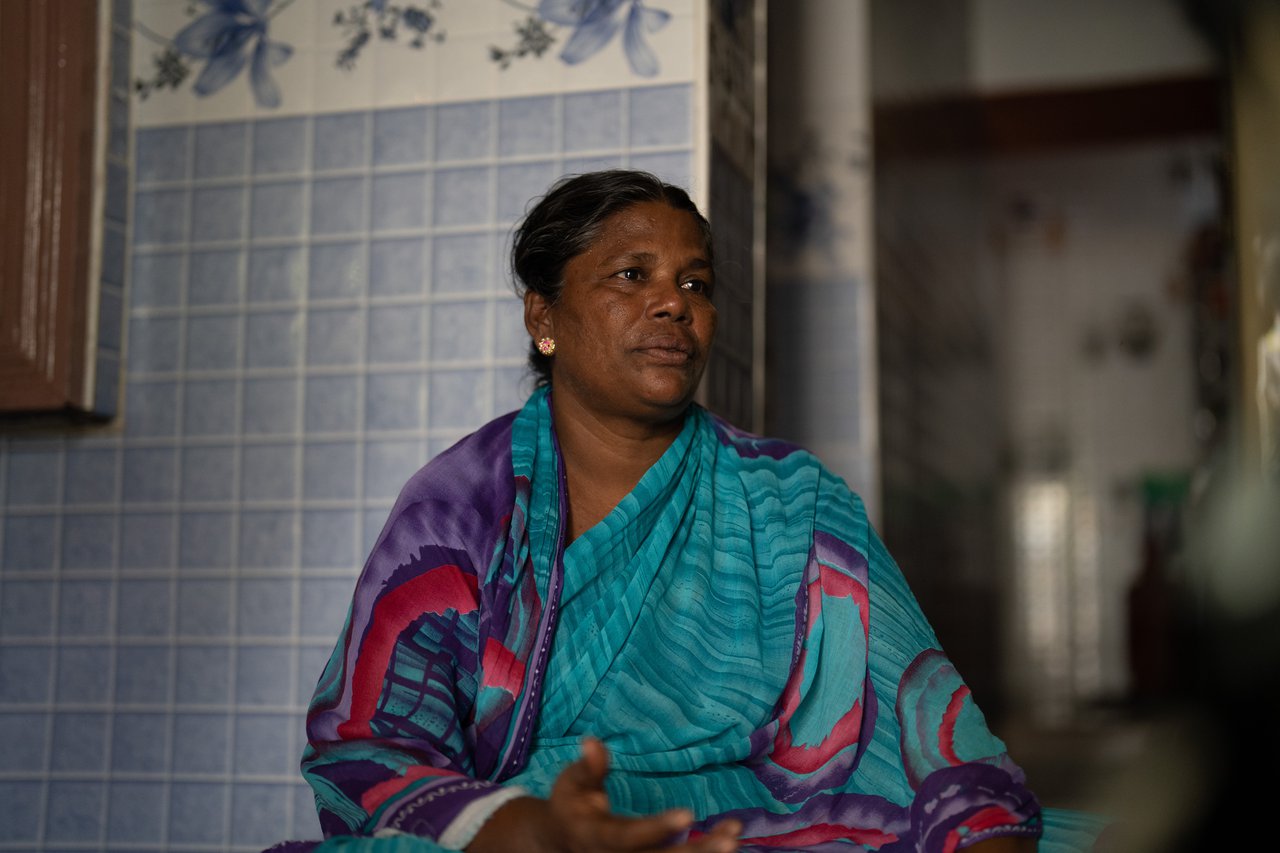
Vanitha attended the protest with her family because she wanted her community to breathe clean air. Photo: Alina Tiphagne
Vanitha's daughter Snowlin was 17 years old when she was killed by police firing at protestors. She recalls that it was “just like shooting birds, [people] were shot, and lives were lost.”
For Vanitha, the cost of protecting the environment is especially painful. “We protested for 100 days in the struggle against Sterlite. In that protest, I sacrificed my daughter for the sake of this town's nature to breathe freely, for clean air to breathe, for clean underground water, for the people to live a pain-free life.”
“We demand justice. By punishing the shooters, the dead victims won't be brought back to life. But in order to prevent this from happening again, the punishment should impart dread and fear. We want justice, and another situation like this should not occur again,” she states.
We want justice… to prevent this happening again. - Vanitha, whose 17 year old daughter Snowlin was killed by police firing at protestors.
India is one of the deadliest places to be an environmental defender, according to our data, with 14 killings in 2021. Over the last decade, 83 land and environmental defenders have been killed across the country. Nearly a quarter of these attacks have occurred in the state of Tamil Nadu – with the majority connected to the Thoothukudu massacre.
The massacre is a stark reminder of the dangers faced by defenders in the country. Laws in India are routinely used to target human rights defenders, preventing them from speaking out and creating a chilling effect on civil society. Many defenders, including Indigenous women, have been jailed and labelled as terrorists for their work.
There is also growing fear over collusion between government and corporate interests resulting in further crackdowns on protesters and activists speaking out against environmental harms. Despite the hostile context within which they operate, many defenders in India are still working to seek justice and to protect their homes and land.
Henri Tiphagne, a Human Rights Lawyer and National Secretary of Human Rights Defenders Alert, India, was at the protest on the day of the Thoothukudi massacre.
Henri told Global Witness: “The pollution from the copper plant united people in Thoothukudi from different sections of society. It was directly affecting their lives, their air, their water. For decades they had seen that the air had been polluted. They had seen members of their families gradually pass away… So many people were mobilised to take action, from the city, from rural areas, from surrounding villages.”
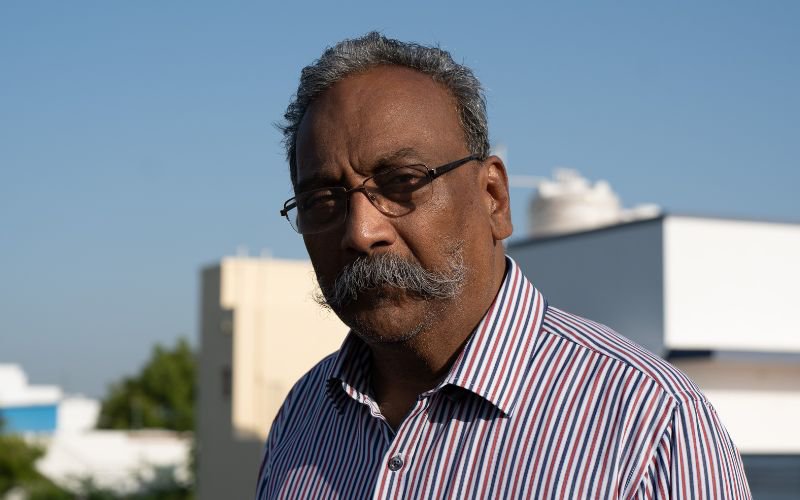
Henri Tiphagne was at the protest on the day of the massacre. Photo: Alina Tiphagne
After years of inquests into the killings, a long-awaited official Commission of Inquiry published last year faulted that Tamil Nadu government for mishandling the protest, and found that the police response was disproportionate and largely unprovoked. This is contrary to earlier assertions by the then Tamil Nadu government and authorities that the police sought to control violence started by the protesters. The report named 17 police officers and held them ‘jointly and severally accountable’ for the deaths of protestors. Tamil Nadu Legislative Assembly subsequently fully accepted all the findings and recommendations in the report in October 2022. Several officers have since been suspended, according to media reports.
Following the protest, the government imposed an internet shutdown until May 25th, limiting the flow of information from Thoothukudi. It also imposed Section 144 in the area – a colonial-era law restricting the public gathering of four or more people – until May 27th.
The community is still recovering from the repercussions of the horrific shooting – and are still waiting for justice. While the Sterlite plant has since been closed permanently by the Supreme Court, no one has yet been held accountable - despite several inquests into the murders, including by the National Human Rights Commission India (NHRI) which closed its investigation into the violence in 2018.
“Never in the history of NHRI India has such a gross violation ever ended with a closure of the complaint,” says Henri, who has challenged the closure of the case before the Madras High Court.
“There has been a history of impunity in this entire struggle. International human rights organisations and Special Rapporteurs have to address the Government once again – five years and no police have been held guilty? The Commission’s report is also under the carpet. Where is justice?” asks Henri.
Defenders Recommendations:
> The government of Tamil Nadu should immediately act on the findings of the Justice Aruna Jagadeesan Commission of Enquiry report on the Thoothukudi massacre. This should include the suspension of all implicated officials, including the District Collector and police officers, and the initiation of criminal proceedings against those responsible.
> The government of India – as well as other governments, UN Special Rapporteurs, INGOs, regional NGOs and human rights defenders within the global community – must stand with the people of Thoothukudi and ensure justice is achieved for the victims of the Thoothukudi massacre.
> The criminal investigation that was undertaken by the CBI resulting in one police officer alone being charge sheeted should be reopened for further investigation by a Special Investigation team.

